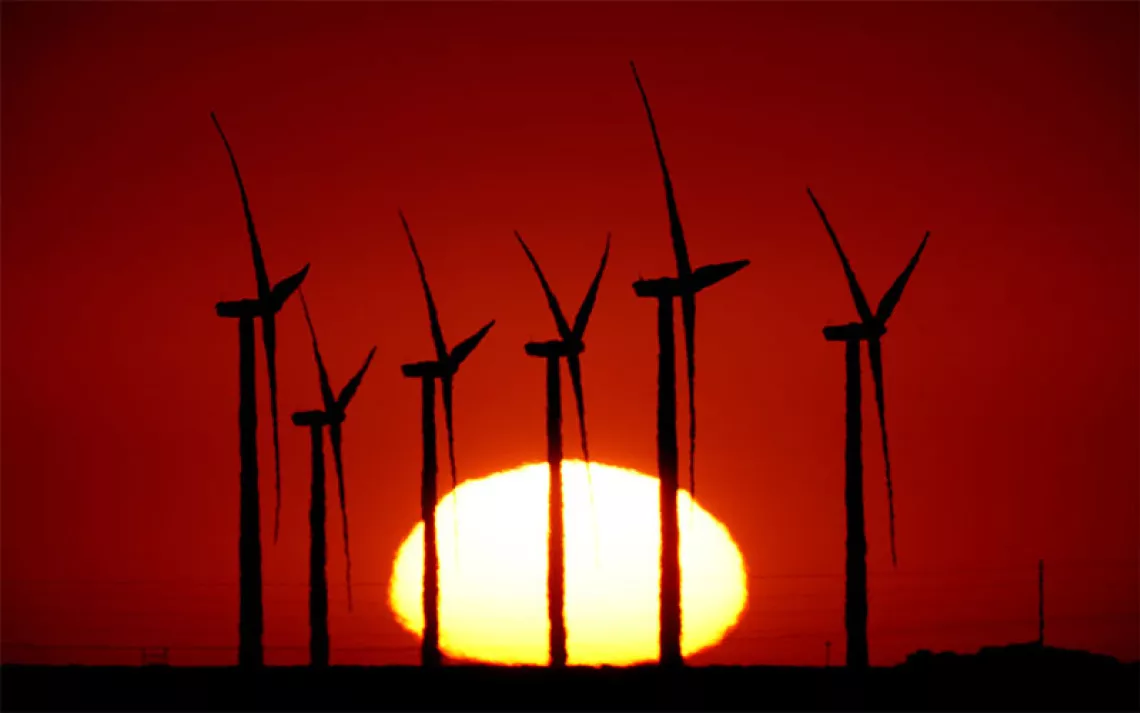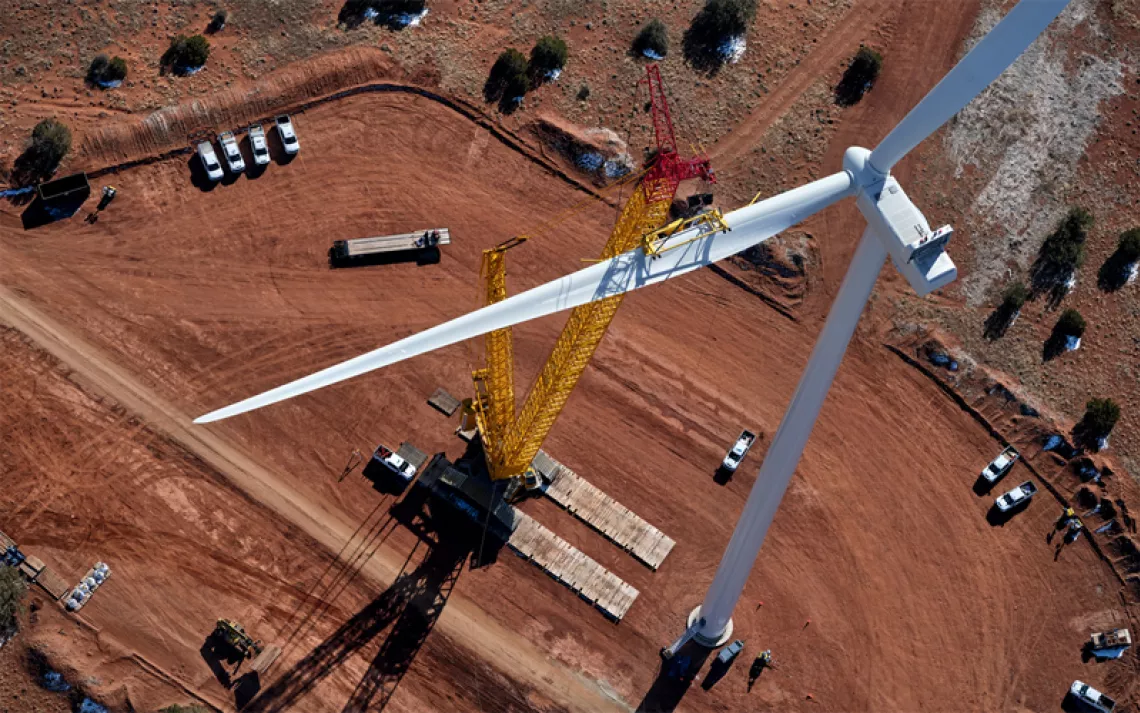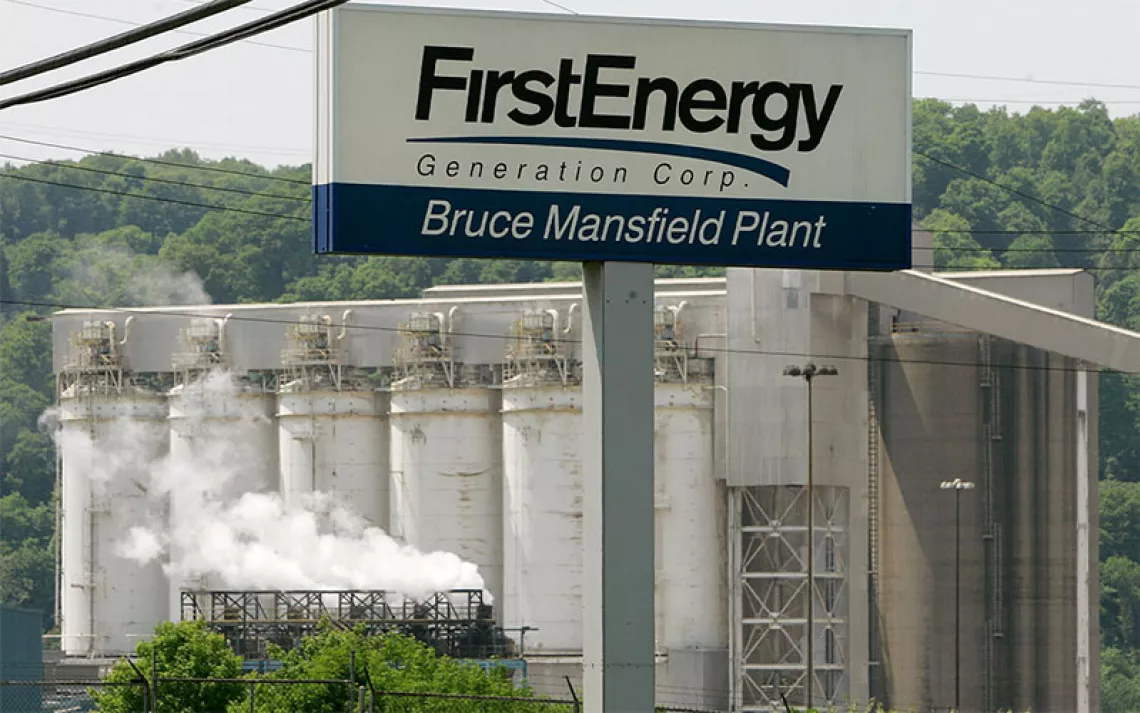Follow the Money
Investors are rushing toward clean energy companies—and leaving the GOP in the dust

Illustration by Boo Paterson
A funny thing happened on the way to the clean energy economy: The Republican Party turned against free market principles.
When I was growing up in the Reagan era, Republican leaders proudly cast themselves as the champions of free market ideas. Capitalism worked best, they argued, when capital could operate with as little hindrance as possible—a philosophy that was fine-tuned into policy via low taxes, loose regulations, and so-called free trade. While Democratic leaders haven't been immune to the siren song of Wall Street (see the Clinton administration), the Grand Old Party has largely remained the backer of big business as the Democratic Party has continued to be the advocate for labor and working families.
Recent years have tested Republicans' faith in the free market. The test has come in the form of a striking divergence between financiers' interest in profiting from the booming renewable energy industry and the fossil fuel corporations' desire to keep profiting by setting things on fire. This year, investments in renewable energy projects will surpass investments in new oil and gas extraction. Yet the GOP remains chained to the dinosaur-energy companies, as Big Oil donates five times as much money to Republican politicians as Democratic ones. All of which has put Republican leaders in an awkward position: Either stick to their stated free market values or ditch their principles and attempt a backward-looking effort to protect the coal, oil, and gas industries. Guess which path they've taken.
As Jessica Camille Aguirre reports in "$DRLL, Baby, $DRLL," Republican officials in states including Kentucky, Montana, Texas, and West Virginia have sought to restrict the ability of government pension programs to invest in funds managed under environmental, social, and governance standards (ESG). In some cases, ESG is little more than greenwashing. At its best, however, ESG is a way of promoting the "triple bottom line"—a kind of capitalism that balances profit-making with the interest of workers and the environment. Mostly, though, ESG is just savvy investing. Smart capital is racing toward the clean energy economy, and smart pension fund managers are chasing after it.
But some Republican officials see ESG as a nefarious plot, and so, surfing their latest one-note rhetoric, they've sought to brand it with an epithet. "Woke capitalism," they sneer.
The attack on ESG is part of a broader campaign to protect the fossil fuel corporations at all costs, even if that means betraying long-standing principles. In some coal states, legislators have sought to put in place rules that would give preference to coal and gas power plants over wind and solar stations—no matter that such rules would increase costs for ratepayers. Last spring in Texas, legislators nearly passed new laws that would have handicapped the state's renewables industry—never mind that the state is the biggest producer of clean energy or the fact that the industry employs nearly 250,000 Texans. For some Republican officials, a retrograde ideological defense of fossil fuels trumps all other interests.
To be clear, the free market alone is incapable of addressing the climate crisis and the extinction emergency. The infinite growth imagined by the GDP model remains fundamentally incompatible with the limits of a finite planet. Absent a broader set of progressive values, a clean energy economy could remain an unjust one.
But markets, mindfully wielded and carefully controlled, can be a powerful tool for accelerating the clean energy transition. Investors are sending a clear and unmistakable signal that they are eager to underwrite the renewables revolution—a signal that's an echo of the warning signs from the planet itself. Perhaps Republican leaders will finally wake up to the blaring alarm clock. Or maybe they'll remain asleep, stuck in a fever dream, tossing and muttering "woke."
 The Magazine of The Sierra Club
The Magazine of The Sierra Club



